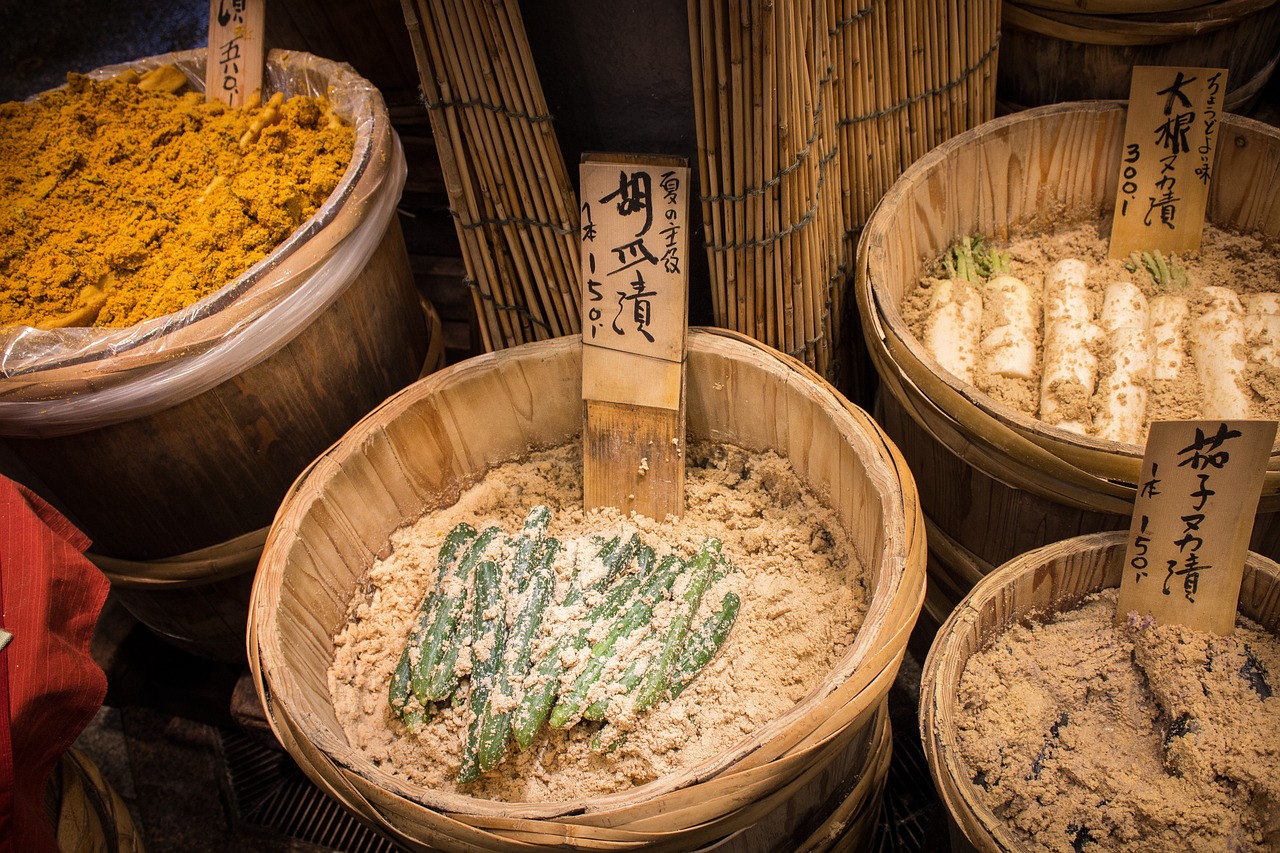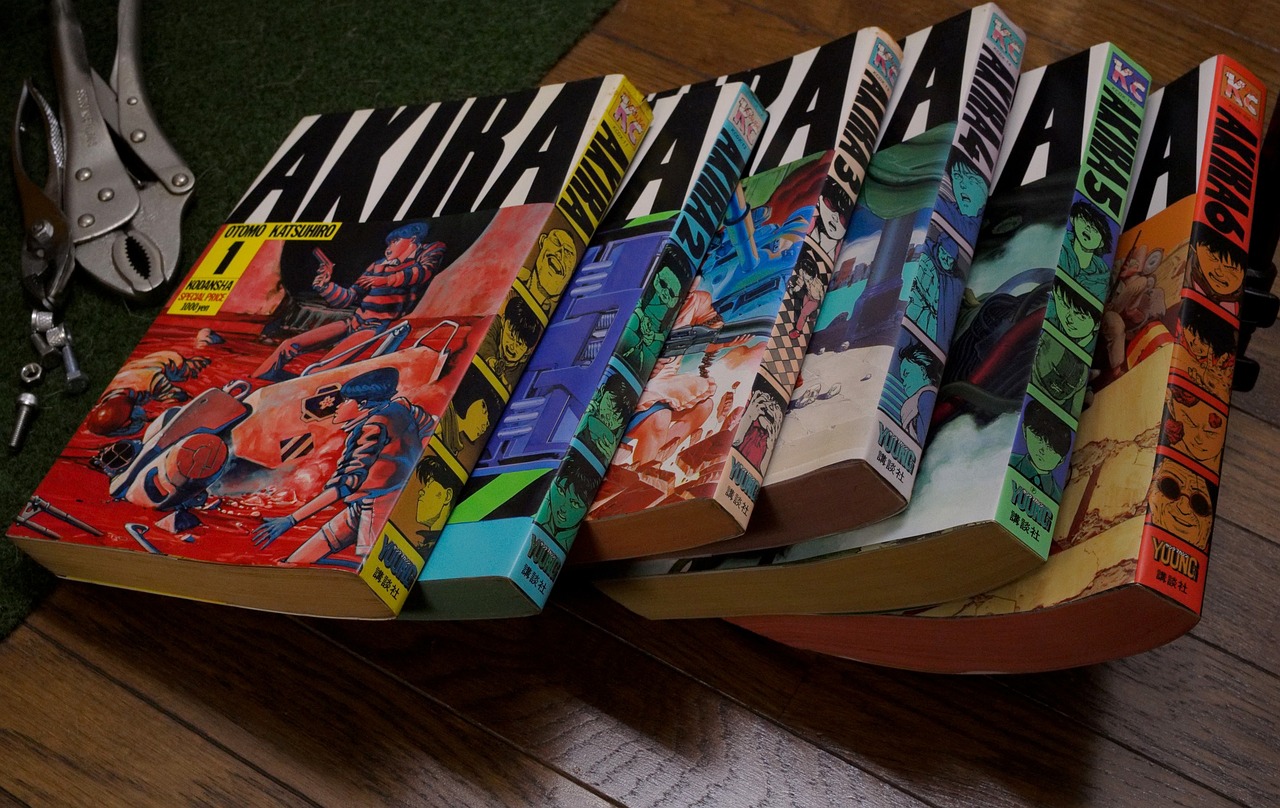12 Best Action Korean Dramas of All Time in 1 Decade, Must Watch
In the action category, there are several best action Korean dramas of all time below that have thrilling action scenes and exciting plots that you shouldn't miss.

Kapanlagi.com - In everyday life, understanding Japanese nouns is the key to effective communication. Nouns not only include physical objects such as books or cars, but also abstract concepts such as love or happiness.
By understanding various types of nouns and their usage, one can construct clear sentences and express ideas accurately. This article will explore various types of Japanese nouns and provide an understanding of these nouns.
Here is a list of Japanese nouns along with their types and how to make sentences.

Illustration (credit: pixabay.com)
Before knowing the list of Japanese nouns, you must first know what a noun is. In Japanese, a noun usually refers to a part of speech that represents an object, concept, or creature that can be touched or sensed physically or abstractly.
Japanese nouns are often referred to as "meishi" or "sa hen meishi" which means noun or changing noun. Examples of Japanese nouns include "hon" (book), "kuruma" (car), "inu" (dog), "denwa" (telephone), and "ai" (love) which have abstract nouns.
Japanese nouns can be divided into several types, such as living things (names of people, animals), inanimate objects (things), concrete objects (objects that can be touched), abstract objects (concepts or feelings), and so on.

Illustration (credit: pixabay.com)
In Japanese, nouns (meishi) can be classified into several types based on their characteristics and attributes.Understanding these types of nouns can help in understanding sentence structure and expanding vocabulary in Japanese.Here are some types of nouns in Japanese:
1.Living Things (Seimei-meishi)
This type refers to living creatures such as humans, animals, and plants.Examples of living things are "hito" (person), "inu" (dog), and "hana" (flower).
2.Inanimate Objects (Fumei-meishi)
This type refers to inanimate objects or abstract concepts.Examples of inanimate objects or abstract concepts are "tsukue" (desk), "kuruma" (car), and "ai" (love).
3. Concrete Objects (Gutaimeishi)
This type refers to objects or things that can be physically sensed. Examples of these nouns are like, "koohii kappu" (coffee cup), "pen" (pen), and "hon" (book).
4.Abstract Objects (Gitaimeishi)
This type refers to concepts, ideas, or feelings that cannot be physically sensed. Examples of these nouns are like, "koufuku" (happiness), "yuujou" (friendship), and "yume" (dream).
5.Possessive Objects (Shoyou-meishi)
This type refers to nouns that indicate possession or origin. Examples of these nouns indicating possession are like, "kare no hon" (his book) and also "watashi no kuruma" (my car).
6.Place Objects (Tokoromeishi)
This type refers to nouns that refer to a place or location. Examples of nouns that refer to places or locations are "gakkou" (school), "ie" (house), and "kouen" (park).
7. Time Nouns (Jikanmeishi)
This type refers to nouns that indicate specific times or periods. Examples of nouns that refer to time are "kyou" (today), "ashita" (tomorrow), and "shuumatsu" (weekend).
8. Quantity Nouns (Kazumeishi)
This type is used to express quantity or size. Examples of nouns that indicate quantity are "hitotsu" (one), "sanko" (three pieces), and "ooku" (many).

Illustration (credit: pixabay.com)
How do you turn Japanese nouns into sentences? First, you can determine who or what performs the action in your sentence. This is the core of your sentence. Then, choose a suitable noun to refer to the object or concept you want to talk about, which can be a physical or abstract object.
After the noun, you usually add a particle to clarify the role of the noun in the sentence. The most common particles are "o", which indicates the object of the action, or "ga", which indicates the subject of the sentence. After the noun and its particle, add an appropriate predicate.
This can be a verb, an adjective, or another word that provides additional information about the subject or object. If necessary, add additional information such as time, place, or condition using additional words or phrases. As you understand it more, here is an example explanation of how to construct the sentence:
Subject: "watashi" - I
Noun: "hon" - book
Particle: "o"
Predicate: "yomimasu" - read
The complete sentence will be "Watashi wa hon o yomimasu." (I read a book.)
In this sentence:
- "Watashi wa" indicates that "I" is the subject.
- "Hon o" uses the particle "o" to indicate that "book" is the object being acted upon.
- And "Yomimasu" is the predicate meaning "read".
By following these steps, KLovers can create simple sentences with Japanese nouns. The more you practice, the more familiar you will become with this structure and the more fluent you will be. And this will build better Japanese sentences for everyday conversation.

Illustration (credit: pixabay.com)
After knowing how to make sentences using Japanese nouns, here are some lists of Japanese nouns to enrich your vocabulary in learning Japanese. Here is the list of Japanese nouns:
1. "hon" = book
2. "kuruma" = car
3. "inu" = dog
4. "neko" = cat
5. "isu" = chair
6. "terebi" = television
7. "konpyuuta" = computer
8. "tokei" = clock
9. "sakana" = fish
10. "tori" = bird
11. "tsukue" = table
12. "shokubutsu" = plant
13. "yasai" = vegetable
14. "kudamono" = fruit
15. "sora" = sky
16. "chikyuu" = earth
17. "denwa" = telephone
18. "fuku" = clothes
19. "kutsu" = shoes
20. "boushi" = hat
21. "saifu" = wallet
22. "pen" = pen
23. "nooto" = notebook
24. "enpitsu" = pencil
25. "kami" = paper
26. "baggu" = bag
27. "jitensha" = bicycle
28. "jikan" = time
29. "taiyou" = sun
30. "tsuki" = moon
31. "hoshi" = star
32. "umi" = sea
33. "kawa" = river
34. "yama" = mountain
35. "machi" = city
36. "mura" = village
37. "kuni" = country
38. "hana" = flower
39. "ha" = leaf
40. "ishi" = stone
41. "ame" = rain
42. "kaze" = wind
43. "kumo" = cloud
44. "yuki" = snow
45. "hi" = fire
46. "ie" = house
47. "heya" = room
48. "resutoran" = restaurant
49. "tabemono" = food
50. "nomimono" = drink
51. "gunkan" = warship
52. "hikouki" = airplane
53. "eki" = station
54. "kuukou" = airport
55. "hoteru" = hotel
56. "chikatetsu" = subway
57. "hanabi" = fireworks
58. "niji" = rainbow
59. "hibana" = spark
60. "basho" = place
61. "keiken" = experience
62. "kanjou" - feeling
63. "shikou" - thought
64. "iken" - opinion
65 "kadai" - task
66. "mondai" - problem
67. "mokuhyou" - goal
68. "seikou" - success
69. "shippai" - failure
70. "yume" - dream
71. "genjitsu" - reality
72. "koufuku" - happiness
73. "kanashimi" - sadness
74. "kyoufu" - fear
75. "kibou" - hope
76. "shinnen" - belief
77. "jiyuu" - freedom
78. "heiwa" - peace
79. "ai" - love
80. "yuujou" - friendship
Those are some Japanese nouns that you can know. By understanding the diversity and depth of Japanese nouns, we can learn Japanese easily. Happy learning!
(kpl/dhm)
Cobain For You Page (FYP) Yang kamu suka ada di sini,
lihat isinya
In the action category, there are several best action Korean dramas of all time below that have thrilling action scenes and exciting plots that you shouldn't miss.
Scorpio zodiac horoscope for Thursday, March 7, 2024, brings an important message to be known. What are they? To find out, just read the following review.
The romantic genre of Korean films is quite popular. However, many Korean films tell touching stories that can even make you cry. Check it out here, KLovers.
These affair-themed drama recommendations will make you excited. Check out the reviews!
The film ARSENAL is a film directed by Steven C. Miller that tells the adventure of two brothers, JP and Mikey, who are trapped in the harsh world of crime. Here is the synopsis of the film ARSENAL along with the list of cast and character explanations.
For those of you who want to watch this movie, here is the complete synopsis of the movie THE LEGEND OF ZORRO along with a list of cast members and explanations of their characters.
How about it, are you even more interested in watching the anime AKAME GA KILL!? If so, just check out the synopsis and brief review below.
The latest Chinese dramas in 2024 have captured the attention of the entertainment world with quite high ratings. Here is a list of the latest Chinese dramas in 2024 with high ratings at the beginning of the year according to Kapanlagi.
In this article, Kapanlagi will provide recommendations for Korean dramas about current professions that are suitable for Gen Z children. Here is a list of Korean dramas about current professions that are suitable for Gen Z children.
Walt Disney Animation Studios films have introduced various unforgettable characters. Including, the most iconic animal characters in several Disney film titles. Check it out here.
If you are a fan of romantic and comedy genres, a series of titles in this high-rated Thai film recommendation might be suitable. Moreover, most of the films in this list are from quite some time ago. Perhaps you haven't had the chance to explore them yet.
Every year, primbon is also used to predict the fortune of a weton for the upcoming year. As one of the weton, how is the fortune prediction for Jumat Legi according to Javanese primbon in 2024?